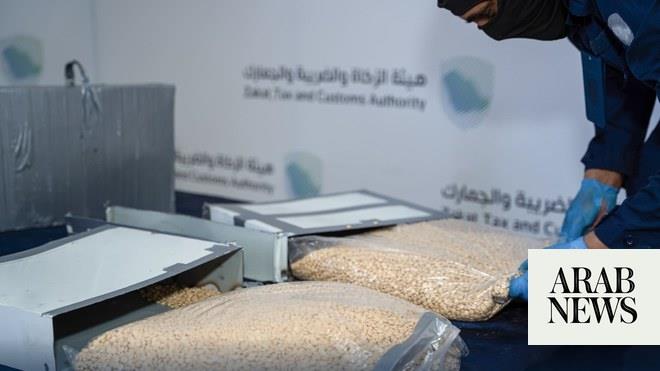
The regional climate of reconciliation and the critical elections scheduled for 2023 have paved the way for Turkey to enter into a normalization process with many countries with which it has had frosty relations over the past decade. Ankara seemingly wants to keep its relations with the EU on track as part of this new strategy.
In the early 2000s, which was the golden age of Turkey-EU relations, the ruling Justice and Development Party, known as the AKP, was the most supportive Turkish political party toward the bid to become an EU member. Then-Prime Minister Recep Tayyip Erdogan even announced that Ankara would continue with its reforms to meet EU criteria. Foreign policy goals, economic benefits and public support were the driving forces behind the AKP’s approach.
At the beginning of its rule, the AKP attached great significance to the goal of EU membership to strengthen its international posture, but also to consolidate its political power at home. The party’s strong support for the pursuit of membership helped to garner votes from several segments of society. Thus, the party saw the EU process as a beneficial tool for consolidating its electoral base. In 2005, during the AKP’s first term in office, the EU accession talks began, which can be considered the high point of Turkish-EU relations. Turkey’s EU candidacy also raised its image in the Middle East, as the region’s countries started to consider it to be a lucrative partner to cooperate with. However, negotiations reached a stalemate in 2007 during the AKP’s second term.
Given that Turkey is heading toward one of the most critical elections in its history, the ruling party needs a way to steer Turkey out of its problematic relations with the EU in order to bolster its position at home. The country is already facing domestic tensions due to the troubled economy. Surveys also show that the Turkish public has lost enthusiasm for Ankara’s membership bid, while the EU itself is divided due to its existing member states’ differing views about Turkey.
Erdogan this month urged EU countries to take “concrete steps” to develop ties with Turkey and to take a strategic approach on relations with his country. He also added that work on updating the Turkey-EU customs union and granting visa-free travel should be started as soon as possible. A few days later, Deputy Foreign Minister Faruk Kaymakci, who oversees EU relations, stated that Turkey is not moving away from the bloc but is being pushed by some EU countries, reiterating that Ankara wants to be evaluated as a candidate state.
Within the EU, the divergent approaches toward Ankara are not only adversely affecting Turkey’s EU process, but also causing friction with the union. For instance, Spanish Prime Minister Pedro Sanchez, who recently paid a visit to Ankara to attend an intergovernmental summit, described Turkey not only as a neighbor but also “an ally of the EU,” vowing to further deepen cooperation in various fields. However, Sanchez’s visit was criticized by the media of another EU member country, Greece. Greek newspaper Kathimerini even stated that “Athens is still finding it difficult to understand why Pedro Sanchez’s government is rushing to throw a lifeline to Recep Tayyip Erdogan at such a juncture.”
Firstly, there are no significant political tensions between Turkey and Spain, such as the former has with Greece and France, which confront Turkish moves from the Eastern Mediterranean to Africa. Secondly, Spain is one of the European countries most affected by the pandemic and Turkey’s help with the donation of medical aid materials was received with great appreciation. Thirdly, Turkey and Spain aim to increase their defense cooperation through the purchase of a second aircraft carrier and possibly a submarine.
Spain is not the only country within the union that differs in policies with the anti-Turkey members. Italy and Germany are also following a course of balanced diplomacy when it comes to the Eastern Mediterranean and refugee issues. Germany, as the leading EU power, slides over Greece’s calls for a tougher stance against Ankara. Illegal migration has been the key driver in Berlin’s softer stance toward Turkey. Cypriot Foreign Minister Nikos Christodoulides this week even said that Germany, Italy and Spain are the three member states that put the brakes on any harsh measures against Turkey.
While Ankara sends positive messages to keep its relations with the EU on track and enjoys the support of some of the countries mentioned above, it remains to be seen if this will be possible during France’s EU presidency in the first half of 2022. French President Emmanuel Macron has been a vocal critic of Turkey and considers its policies problematic in terms of regional issues. There are also other member states that criticize Turkey for its withdrawal from the Istanbul Convention on preventing and combating violence against women, which Ankara previously promoted. In other fields, Turkey’s behavior as a member of the Council of Europe is considered as not in line with EU values.
Thus, ahead of the 2023 general election, there are three challenges seemingly waiting for Turkey. France’s presidency might be the first, while the inconsistency within the EU over Turkey’s fate might be the second. Lastly, the ruling party has the crucial task of regaining EU support for — as well as public belief in — its membership bid.











